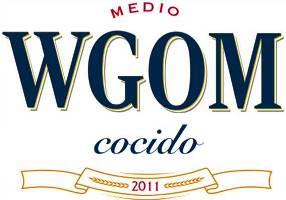Fred Clarke (1872)
Bob Skinner (1931)
Jack Lamabe (1936)
Chuck Scrivener (1947)
Dave Winfield (1951)
Dennis Eckersley (1954)
Jim Joyce (1955)
Daryl Sconiers (1958)
Darrin Fletcher (1966)
Junior Felix (1967)
Wil Cordero (1971)
Eric Munson (1977)
Infielder Chuck Scrivener was drafted by the Twins in the seventeenth round in 1966, but did not sign.
Jim Joyce was a major league umpire from 1989-2016.
We would also like to wish a very happy birthday to spookymilk.
Hall of Fame outfielder David Mark Winfield played for the Twins from 1993-1994, near the end of his long career. Born and raised in St. Paul, Winfield attended the University of Minnesota. At 6′ 6′, Winfield starred in basketball as well as baseball in college, and was involved in the famous brawl between Minnesota and Ohio State in 1972. He was drafted by San Diego with the fourth pick of the 1973 draft. He was actually drafted by four teams: the Atlanta Hawks and the Utah Stars basketball teams both drafted him, as did the Minnesota Vikings football team, although he did not play football in college. Winfield is one of a handful of players to never play a game in the minors; he was placed on the Padres immediately in 1973. It was a good move, as he hit .277 that year with an OPS of .714. Winfield became a star in San Diego, making the all-star team four times and twice finishing in the top ten in MVP balloting. He finished third in MVP voting in 1979 despite playing for a team that only won 68 games. He led the league in OPS+, RBIs, and intentional walks that year. After the 1980 season, he became a free agent and signed with the Yankees, for whom he played through May of 1990. Winfield had a tremendous career as a Yankee, but received a lot of criticism for not being Reggie Jackson. As a Yankee, Winfield made the all-star team eight times, was in the top twelve in MVP balloting six times, won five silver sluggers and five gold gloves, and had an OPS+ of 134. He missed the 1989 season due to a back injury, and after a slow start in 1990 he was traded on May 11 to California for Mike Witt. In his late thirties, Winfield had started to decline, but was still a very good batter for the Angels, winning comeback player of the year in 1990. He became a free agent and moved on to Toronto in 1992, where he helped the Blue Jays win a world championship. He came home to sign with the Twins before the 1993 season and played for them for two years. In his early forties, Winfield was clearly no longer what he had been, but he still hit .264/.324/.436 with 31 homers and 110 RBIs for the Twins, with an OPS+ of 100. Shortly after the 1994 players’ strike, Winfield was sold to Cleveland in an attempt to get him into the postseason one more time should the strike be resolved. It wasn’t, but Winfield signed with the Indians in 1995. Age finally caught up with him, however, as he hit only .191 at age 43. Dave Winfield was elected to the Hall of Fame in 2001. He has founded the David M. Winfield Foundation for underprivileged youth and at last report was a special assistant to the executive director of the Major League Baseball Players Association, as well as being available for public speaking.
Corner infielder/catcher Eric Walter Munson did not play for the Twins, but was in spring training with them in 2005. Born and raised in San Diego, he attended USC and was selected by Detroit with the third pick of the 1999 draft. He showed power immediately in the minors, hitting double digit home runs in every minor league season and hitting over 20 homers in 2001 and 2002. He also drew a solid number of walks. On the down side, his batting averages were in the .250s and .260s, and he struck out a lot, fanning over a hundred times twice and ninety-six times another season. He came up to the majors briefly in 2000, playing in three games in July, and got September call-ups in 2001 and 2002. His only full seasons in the majors were 2003 and 2004, when he was a part-time third baseman. He hit 37 home runs in 634 at-bats in those two years, but his batting average was only .226. That was not considered good enough, and Munson was allowed to become a free agent after the 2004 season. Minnesota signed him but released him in late March. He moved around quite a bit after that. Munson signed with Tampa Bay for 2005 but spent most of the year with AAA Durham, getting only 18 at-bats in the majors. He moved on to the Houston organization in 2006 and went back and forth between Houston and AAA Round Rock for two years, getting a total of 273 at-bats with the Astros. The Astros waived him after the 2007 campaign and he was chosen by Milwaukee. He was apparently injured much of the year, as he played in only 27 games in AAA. After the 2008 season he was on the move again, signing with Oakland. He was in AAA Sacramento almost the entire season, but got one more at-bat in the majors in September. He signed with San Diego for 2010, but hit poorly with AAA Portland and was released in early July. He finished the season playing for the independent Newark Bears. He apparently remained in the Atlantic League in 2011, playing for the Bridgeport Bluefish, but he did not have a good season. He was not ready to give up, but no one was willing to give him another chance and his playing career ended. He received a bachelor's degree in athletic training from North Dakota State, was an assistant coach for USC in 2012, and was the minor league rehabilitation coordinator for the Los Angeles Angels from 2013-16, and has been the Angels' assistant athletic trainer since 2017.

